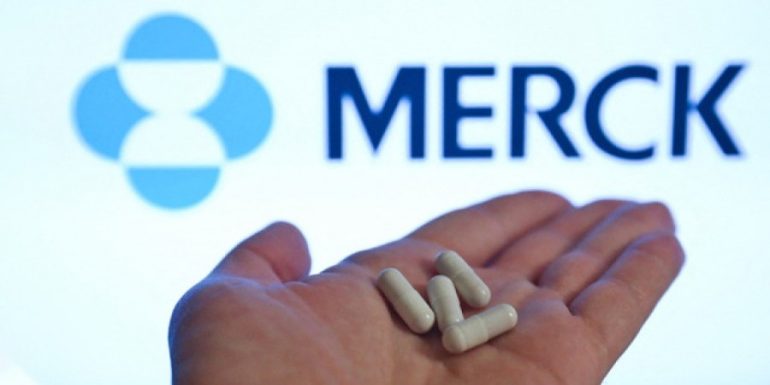Some laboratory studies provide evidence that Merck's molnupiravir pill Covid-19 can cause errors in the genetic material (DNA), which - in theory at least - could harm a developing fetus, germ cells or even children. The US pharmaceutical industry insists that, according to its own studies, there is no indication that its pill causes DNA mutations.
The promising antiviral pill reduces by 30% (and not by 50% as originally announced) the risk of hospitalization and death due to infection Covid-19, if administered within five days of the onset of symptoms, while it is also hoped that it will be effective against the new Omicron variant, but something that remains to be confirmed. Some scientists, however, continue to raise concerns about the possibility that the drug could cause mutations in human DNA, according to the New York Times and Nature.
Two weeks after the Food and Drug Administration (FDA) panel of experts voted by a narrow majority (30-13) on November 10 in favor of urgent approval of the new drug, the FDA is still considering the matter and has not made its decision public. which probably betrays uncertainties on her part. One of the main questions is whether the pill can cause mutations in the patient's DNA, as several members of the advisory committee requested that the pill not be given to children up to 18 years of age and pregnant women.
Scientists are worried about the risk of giving birth to babies with birth defects. "Do we want to reduce the risk to the mother by 30%, while exposing the fetus to a much higher risk of harm from this drug?" "My answer is no, and there is no way I would advise a pregnant woman to take this drug," said Dr. James Hildrett, president of Meharry Medical College in Tennessee and a member of the FDA Advisory Committee, who opposed the pill. . Some other FDA scientific advisers do not rule out that the risks may apply to other patients, such as men who want to become fathers.
Molnupiravir incorporates its active substance into the coronavirus RNA, causing genetic errors in the virus and thus preventing it from multiplying, which helps the patient's body to defend itself. The crucial question is whether the pill can also cause errors in human or fetal DNA.
A team of researchers at the University of North Carolina studied the effect of the drug on rodent cells and found that it did cause mutations in the animals' DNA, which could lead to cancer or fetal malformations. The question is whether something similar can happen to humans. Merck scientists, opposed to the above research, countered that the animal cells were exposed for a much longer period of time than would be exposed to patients with Covid-19, as their treatment with a total of 40 pills lasts only five days. They also said that in their own experiments with rodents they did not find any signs of genetic mutations, although they have not released the full details of their study.
"If I were pregnant, I would not take this pill. "I might not even give it to a child, to a teenager, to anyone whose cells are still dividing and differentiating at a high rate," said Dr. Elizabeth Campbell of Rockefeller University in New York. In Britain - the first country to urgently approve the Merck pill on November 4 - health authorities have stated that the Merck pill should not be given to pregnant or breastfeeding women.
Other scientists are concerned that the deliberate induction of mutations by Merck's drug into the coronavirus genetic material may eventually lead to the emergence of a more dangerous variant, which is unlikely but not unlikely, especially in immunocompromised patients.
In a few weeks, Pfizer is expected to receive the "green light" for its own Paxlovid antiviral pill, which is said to be more effective than Merck (reducing the risk of hospitalization and death by up to 89%) and, because it has a different mechanism of action, does not pose a risk of causing genetic mutations.
However, Merck's drug is expected to be more widely available than Pfizer in the coming months, at a time when a new pandemic wave seems to be erupting due to Omicron. For older people with underlying diseases who are at higher risk for severe coronary heart disease, the benefits of the Merck pill seem to outweigh the risks, according to most scientists. Merck has assured the FDA's advisory committee that it will launch a monitoring program for pregnant women taking the pill.
Monoclonal antibodies reduce the risk of severe by up to 85% Covid-19However, they are very expensive, not widely available and also need to be given intravenously, so they have disadvantages over antiviral pills.
Source: RES-EAP
